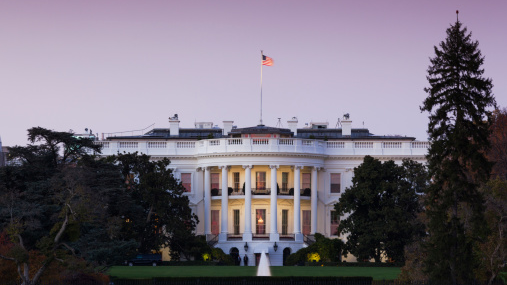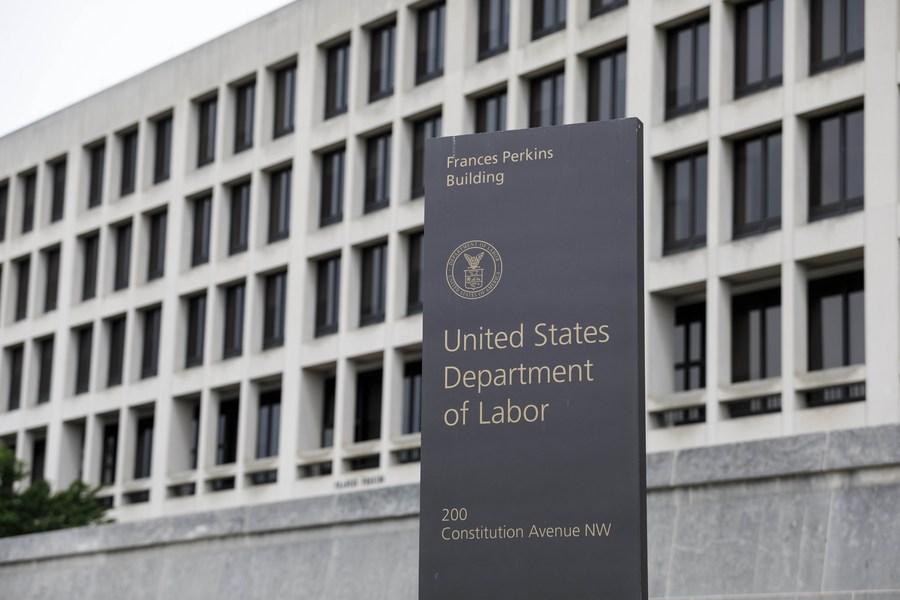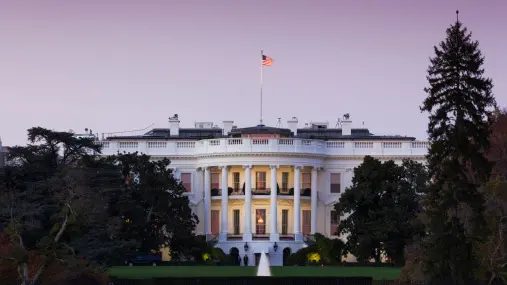
The White House in Washington, D.C., U.S. /Getty
Editor's note: Bradley Blankenship is a Prague-based American journalist, political analyst and freelance reporter. The article reflects the author's opinions and not necessarily the views of CGTN.
U.S. President Joe Biden is continuing the same approach as his predecessor, Donald Trump, in straining relations between Washington and Beijing. This was made clear by a report from the office of the U.S. Trade Representative's released on Monday: "The Biden administration is committed to using all available tools to take on the range of China's unfair trade practices that continue to harm U.S. workers and businesses."
This theory that somehow China is to blame for the woes of American workers and small businesses, meanwhile the very wealthiest American individuals and firms post record profits, has long been known to be false but is apparently commonplace in Washington now. Why is that?
I recall being assigned New York Times columnist Thomas Friedman's book "The World is Flat" in high school. My history teacher warned my class that in order to make it in the job market of the 21st century we had to know what direction the winds were pointing and adapt. Friedman's book, which came out in 2005, was an international best-seller because of its meticulous detail in describing how the economic playing field was being leveled at the beginning of the 21st century.
As I thumb through this book now over a decade later, I can't help but notice how clear this entire process – and how clear the solutions to addressing the growing pains of this evolution – actually have been for some time.
For example, it has been obvious that existing jobs in the U.S. would be cut, automated or outsourced as firms looked to optimize their output to stay competitive in a globalized age.
Friedman gives the example early on of the financial sector, where routine tax filings began to be outsourced to India in the early 2000s and continue today. This happened because labor was cheaper, the work was not complex and it freed up U.S. workers to deal with clients in a more personalized way rather than being stuck filing taxes for the first quarter of the year. The benefits were obvious: These were high-paying jobs for Indian accountants, U.S. consumers could get more face time with their financial advisors and firms cut costs.

The building of Department of Labor in Washington, D.C., U.S. May 8, 2020. /Xinhua
Of course, this has posed risks to low-skill workers that are unable to meet the demands of this new arrangement. But this is not the point where globalization should have been abandoned (and obviously wasn't), rather the point where leaders in Washington should have devised plans to bolster existing social safety nets; improve access to a high-quality education and retraining programs; and seek out fresh, perhaps even better, economic opportunities.
Washington's rancor for even the most modest social safety programs, however, made this impossible. Instead, the issue has been re-framed in such a way that American workers, particularly manufacturing and industrial workers in the Midwest, blame workers in other countries (even though most manufacturing jobs have been lost to automation) for their own government's failure to prepare for an easily predictable reality.
I'm reminded of one episode from the popular American TV show The Office that aired in 2010 titled "China."The main character, Michael Scott, an eccentric and dimwitted office manager, becomes paranoid and decides that China must be stopped before it takes over the U.S. as the world's largest economy after reading an article at his dentist's office about China's global rise.
"My whole life I believed that America was number one, that was the saying. Not America is number two. England is number two. China should be like eight," the character says at one point.
After having a near-breakdown over this issue during the whole episode, Michael is assured by a more intelligent co-worker in the accounting department that his fears are misplaced. The character, named Oscar, said that "people use China as the boogieman for all their problems. In the 1980s, it was Japan."
This is exactly right. China is being cast as a boogieman for a serious segment of the American ruling class because they cannot admit that their own abandonment of governance has led to this point. No other country made the U.S. gut its social safety nets, neglect its infrastructure or make education, health care or housing inaccessible for millions of its citizens. Washington is solely to blame for that.
Any analysis that does not acknowledge that the U.S. government has a responsibility to help American workers advance and stay competitive will never lead to an outcome favorable to them. Unfortunately, this incomplete analysis is what led Trump to the White House in 2016 and Biden is apparently still tapping into it.
(If you want to contribute and have specific expertise, please contact us at [email protected].)
 简体中文
简体中文

